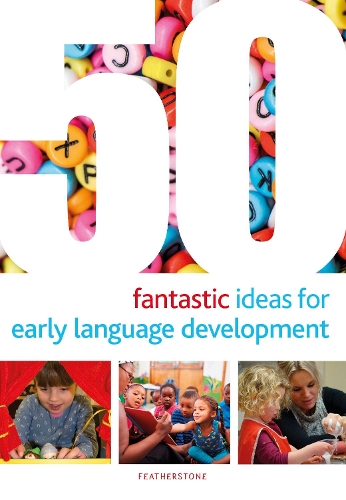
50 Fantastic Ideas for Early Language Development
(Paperback)
Publishing Details
50 Fantastic Ideas for Early Language Development
By (Author) Dr Mary Scanlan
Bloomsbury Publishing PLC
Featherstone
1st October 2018
United Kingdom
Classifications
Professional and Scholarly
Non Fiction
Educational: First / native language
Pre-school and kindergarten
Teaching skills and techniques
372.6049
Physical Properties
Paperback
64
Width 168mm, Height 244mm, Spine 6mm
180g
Description
The 50 Fantastic Ideas series is packed full of fun, original, skills-based activities for Early Years practitioners to use with children aged 0-5. Each activity features step-by-step guidance, a list of resources, and a detailed explanation of the skills children will learn. Creative, simple, and highly effective, this series is a must-have for every Early Years setting. Supporting young children's language development has always been an important part of high-quality Early Years practice. Competency in language (written and spoken) is essential in ensuring children can access learning across the whole curriculum and simultaneously supports personal, social and emotional development. However, it is becoming increasingly clear that many children need additional support to meet age-related expectations in this area. 50 Fantastic Ideas for Early Language Development presents a range of flexible and adaptable ideas to help practitioners develop their practice in the area of speaking, listening and communication. The author, Dr Mary Scanlan, is a expert in Early Years education. She puts theory into practice in this dip-in book by introducing accessible activities that are underpinned by research and an understanding of best practice. This book covers all areas of the EYFS, including the needs of children with EAL or SEND.
Author Bio
Dr Mary Scanlan is Senior Lecturer in Education at the University of Winchester. She leads teaching in the area of early language development on both undergraduate and postgraduate courses and has worked with Foundation degree and EYITT trainees. She has been a governor in a local school with responsibility for the EYFS, graded 'outstanding' in 2014. She also works closely with local schools and children's centres, so is very aware of the needs of practitioners. Her main areas of expertise are in Early Years education, literacy and qualitative research with young children.
